
Belt - part of the pants to fasten them to the hips or waist, also ensuring the integrity of the construction of two trousers.
Loops are placed on the waistband of pants. They are used to insert and hold the belt.
Protector - a fold under the waistband of pants, draping the transition from hip to waist or a fold at the bottom of trousers to artificially narrow them.
Trouser, pant leg - one part of a pant covering one leg completely or partially.
Codpiece or fly, bow - detail of pants designed to handle the fastener - the fly, in the front of pants. Can be equipped with loops, zippers, buttons, buttons.
A dart is an internal fold on pants that determines the fit of the figure in different parts. On pants, the darts are most often made in the back, between the pockets and the waistband.
Bottom of the pants - the bottom line of the pants, which determines the length of the product.
A pocket is a part of the pants, sewn or stitched into their construction to store small things. Pockets can be patch or slit.
Watch pocket - borrowed from the classic jeans a small overlay pocket, located above the right or left front pocket.
The cuff is a decorative detail used to decorate the bottom of trousers. It is an additional layer of fabric at the bottom edge of trousers.
Buttons for suspenders are buttons placed on the back of the pants on the inside and are necessary for attaching suspenders. They are not used in all models.
Arrows - deliberately ironed vertical folds cutting each pant into two parts. An element inherent in business pants.
Mocktail is a specific, not always used element of pants in the form of a wide, overlapping wide waistband. Often used on maternity pants.

Lightweight straight cut pants, slightly tapered at the bottom made of cotton twill. Usually has front and back pockets, and in some cases arrows cutting the pant legs at the front.

Loose pants made of heavy gabardine with peplum under the waistband. Can be straight or tapered to the bottom. Often complemented with arrows and tucked at the bottom.
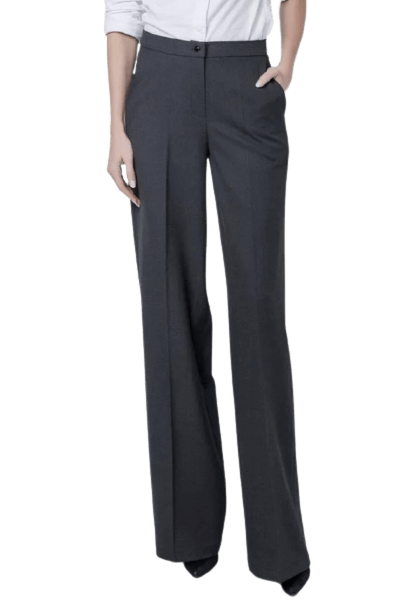
Pants straight cut or with a slightly narrowed bottom made of thick suit fabric. In the traditional form have arrows, loose silhouette without fitting the length of the pants. The fit is medium.

Young free style pants with roomy side pockets and slightly tapered pants at the bottom. Made of denim, cotton or viscose.
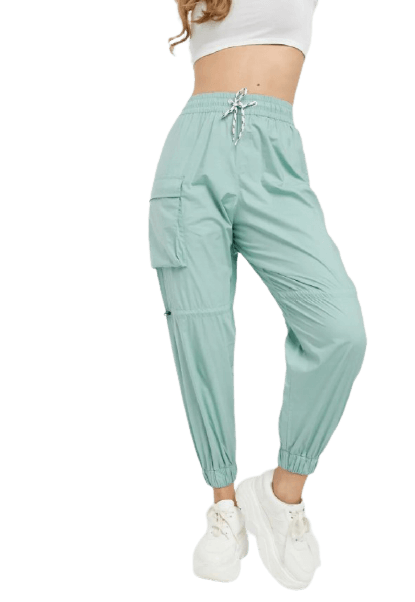
Free cut pants are voluminous at the hips and narrowed to the bottom with an elastic band or cuff. The trousers can have different depth of fit, as well as additional details - patch pockets, suspenders.
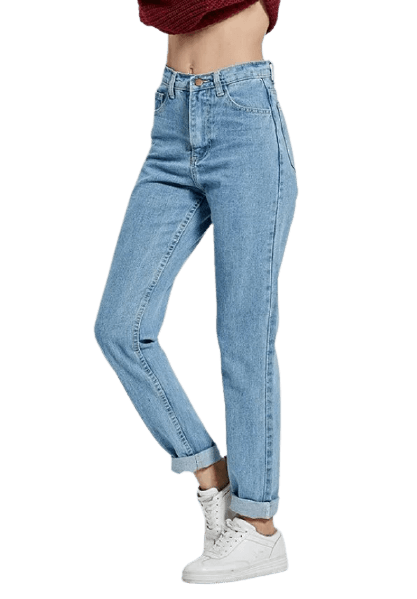
Pants made of heavy denim with five pockets - two in the front and two in the back - and an extra pocket for a watch. Can be loose, tapered, tight. Jeans styles.
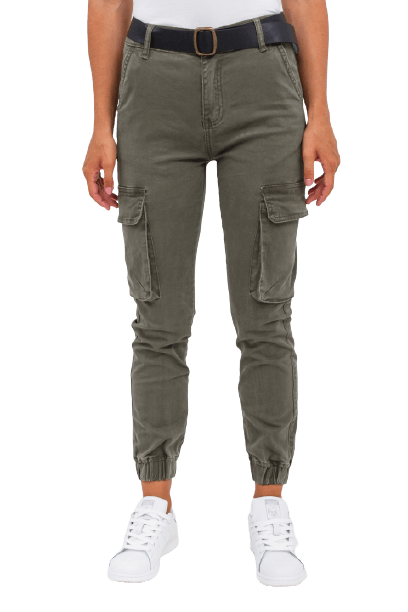
Straight cut pants with skinny pants equipped with elastic bands. There are additional pockets on the hips or calves. Classic cardigans are made of dense fabric.
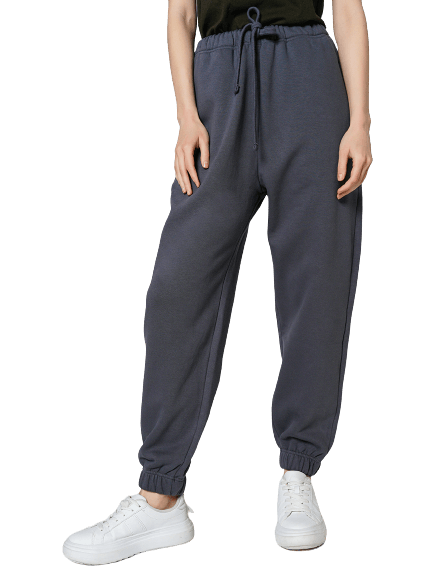
Pants made of soft, stretchy fabric, originally designed for sports activities. They can be of different cuts, styles and fit.

Брюки, плотно облегающие ногу ниже колена, но очень широкие в области бедер. Бывают бриджи для верховой езды.
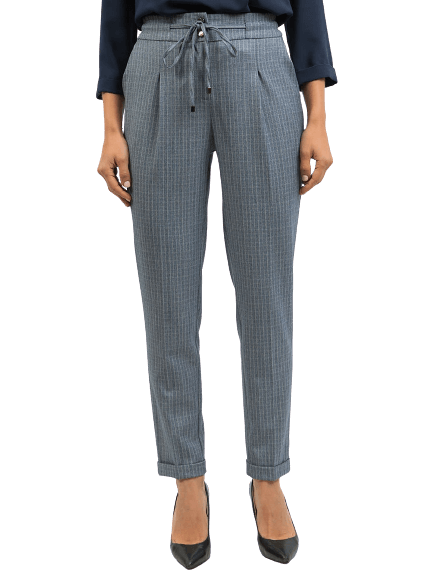
Wide at the hips and gradually narrowing to the bottom of pants with guards under the belt.
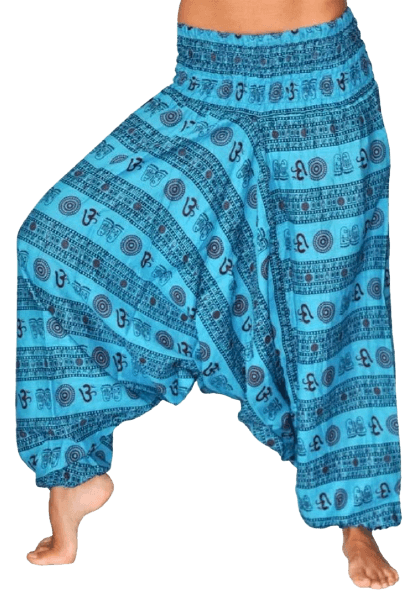
Alladins, zouaves are very loose pants with an offset foot seam - the crotch area of such pants is below the knees. The traditional clothing of the inhabitants of Arab countries.

Loose pants with a low thigh fit and slightly drooping bottom seam. Usually have tapered trousers, decorated with cuffs.

Pants with a very low fit, exposing the upper part of the buttocks, invented by designer Alexander McQueen. Can have different degrees of fit.
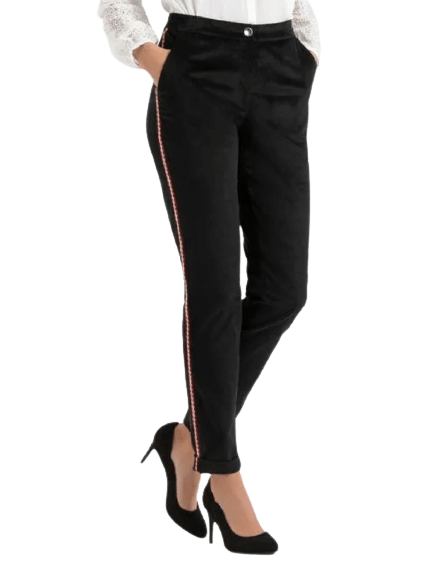
Partial ankle length or higher pants with high or medium fit and slightly tapered bottom. The traditional version is tight around the leg, but can also be loose at the hips.

The carrot pants are wide at the hips and strongly tapering at the bottom. The silhouette resembles a carrot and has puffs under the waistband.
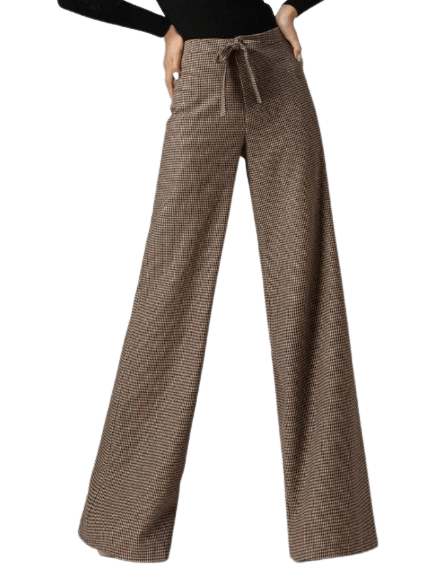
Pants, gradually expanding to the bottom. Can extend from the hip or from the knee.
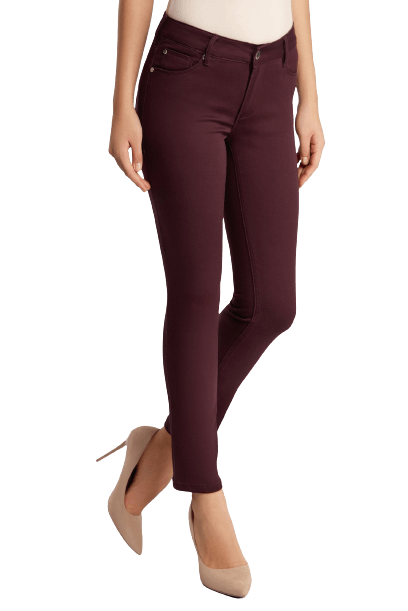
Pants that fit tightly around the leg along the entire length. They are made of different types of fabrics, but always with the addition of elastane.
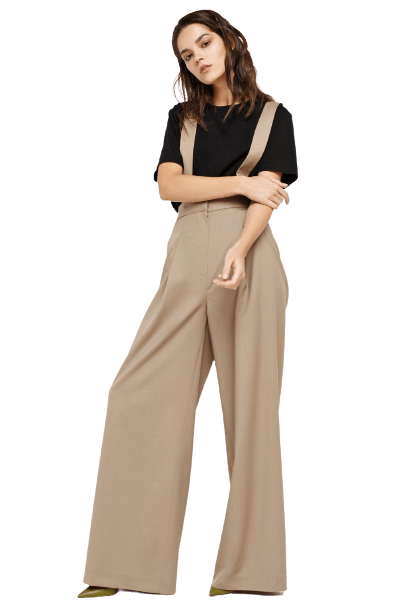
Wide, straight cut pants with a medium or low fit. Made of suit or denim.
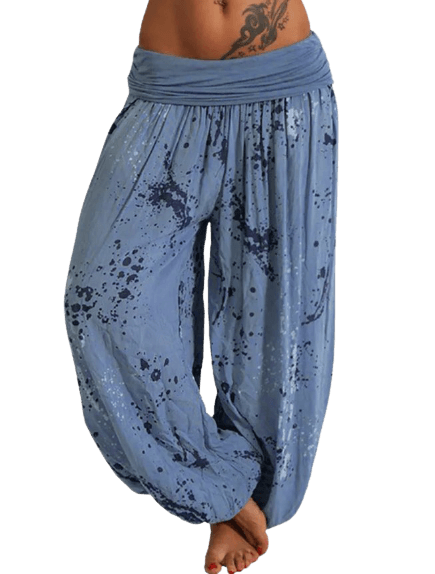
Free full-length pants with pleats at the waist and tapering to the shin. Part of the traditional clothing of the Oriental peoples.
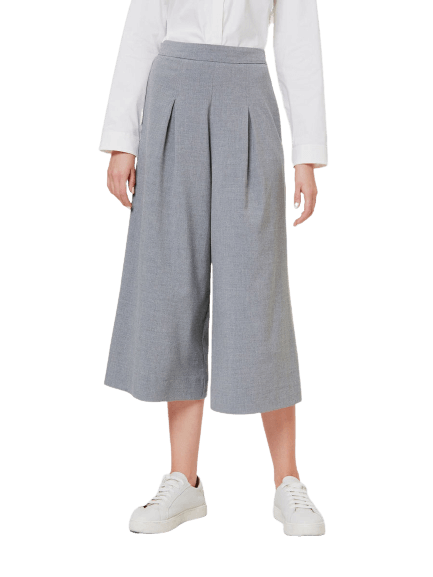
Wide pants of incomplete length, not exceeding the middle of the shin. The waist is usually inflated.
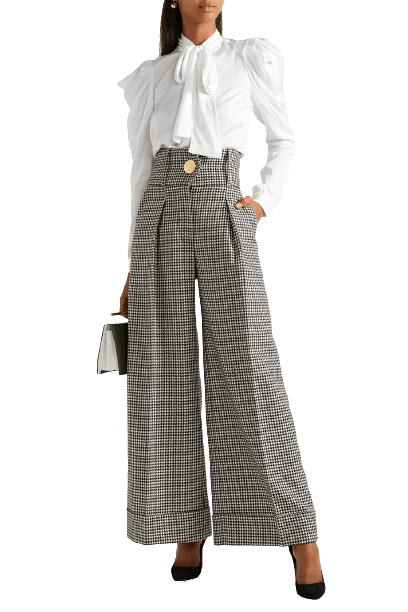
Loose, flared from the hip pants with high or medium fit.
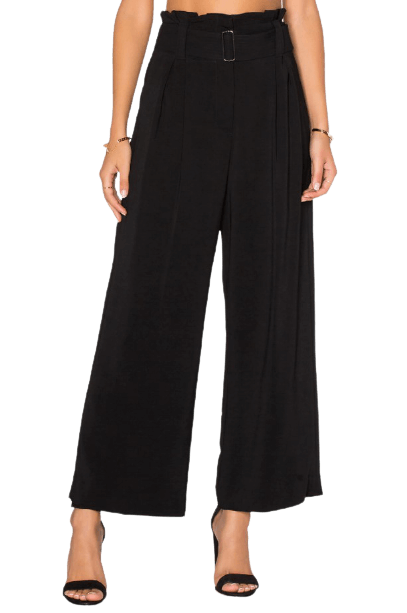
Short, wide, ankle-length pants that echo the traditional costume of South American cowboys.
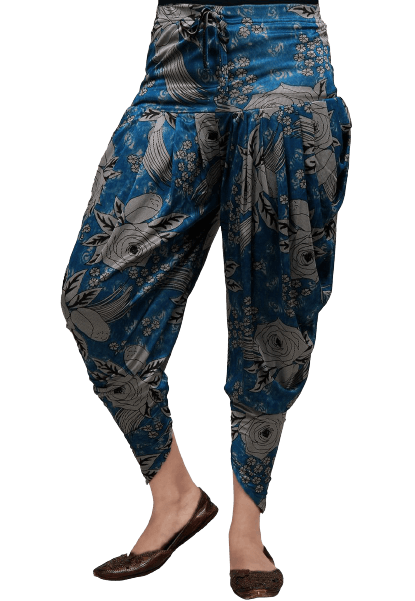
Traditional Indian women's loose cut pants, tapered to the bottom with enhanced draping along the entire length, including the thighs.
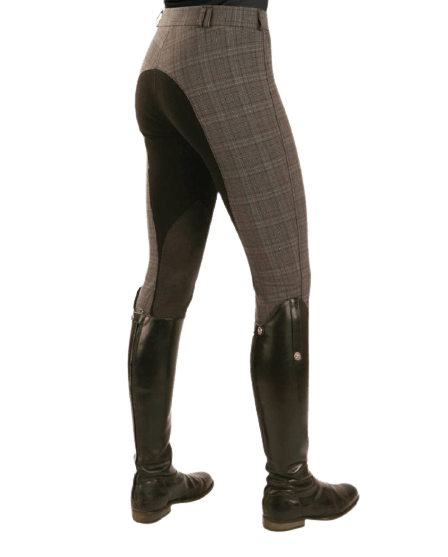
Tight-fitting riding pants made of elastic material with a tight cuff. Can be equipped with a reinforcement pad on the inner thighs from crotch to knees.
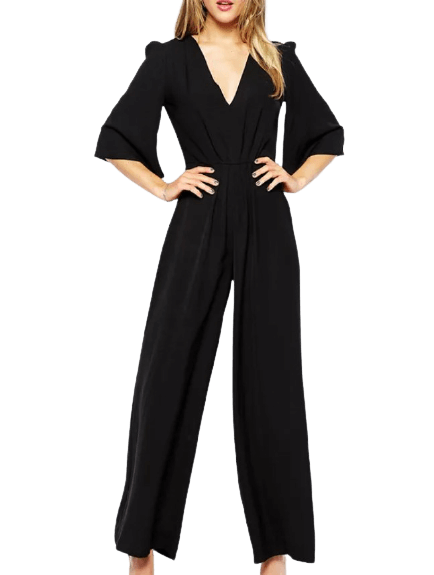
An item of clothing that combines the bottom in the form of pants of different styles - palazzo, classic, chinos, and the top in the form of a vest, shirt, top.
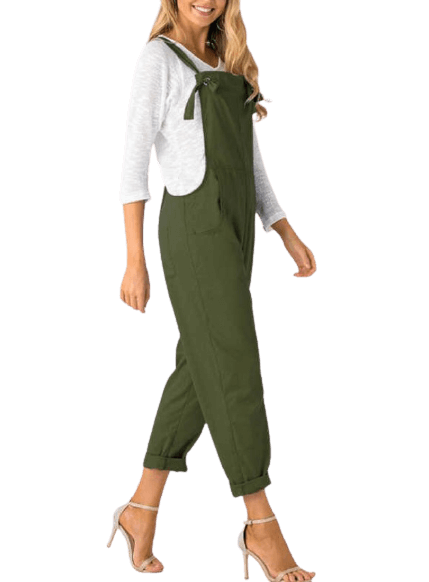
Pants with a bib attached above the waist. Unlike the jumpsuit, the dungarees are worn with an additional top layer - a shirt, top, or T-shirt.
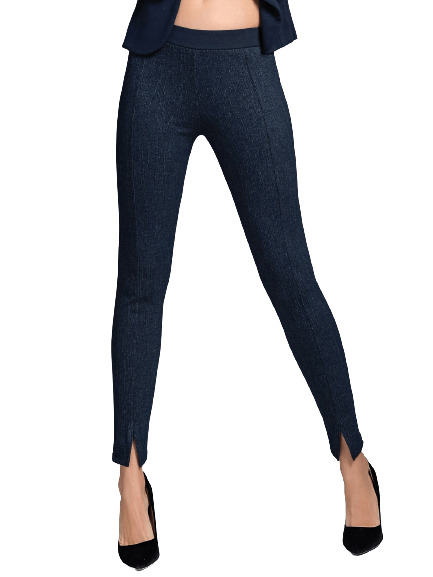
The leggy pants or leggings are leg-fitting pants made of stretchy full-length material with an elastic waistband without a codpiece and most often without pockets.
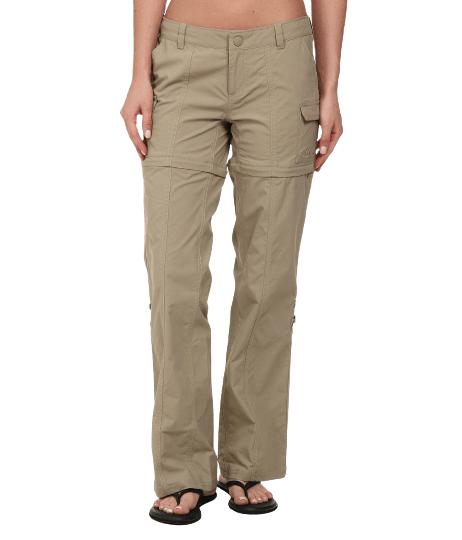
Multifunctional item of clothing, depending on how the parts can be attached, can turn into a dress, skirt, jumpsuit, shorts.
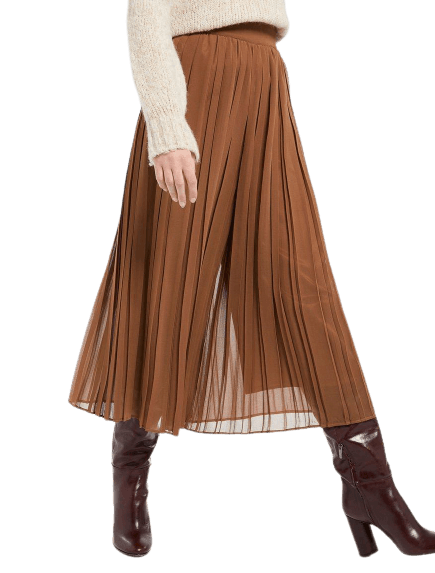
Pants with very wide trousers, often made of flying fabrics, which in a standard leg position merge and look like a skirt. Often there are pleated models.
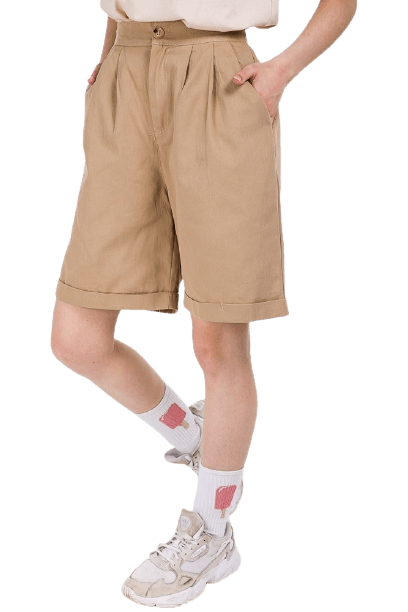
Bermuda - elongated shorts or short free-cut pants up to mid-knee or slightly above it.
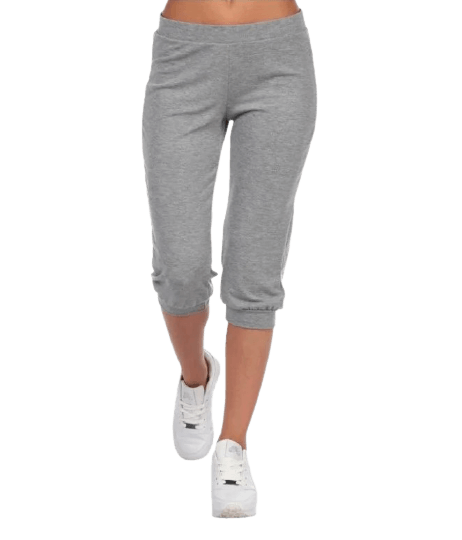
Modern breeches are shortened pants just below the knee with cuffs on the pants, tightly covering the legs.
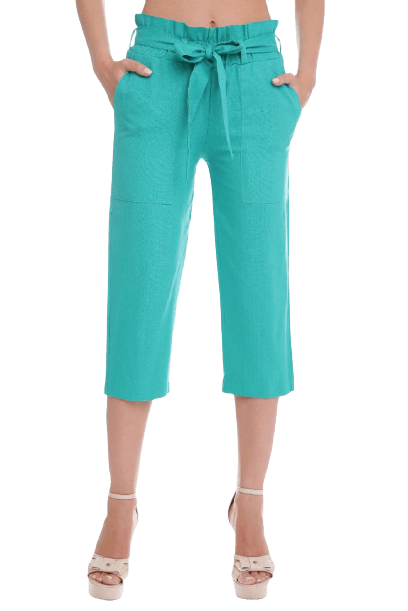
A shortened model of pants with the length of the pants approximately to the middle of the shin or slightly above. In the traditional version have a straight cut, but can be tight or loose.

Pants with wide pants. The pants fit the body only at the waist and do not touch the legs.
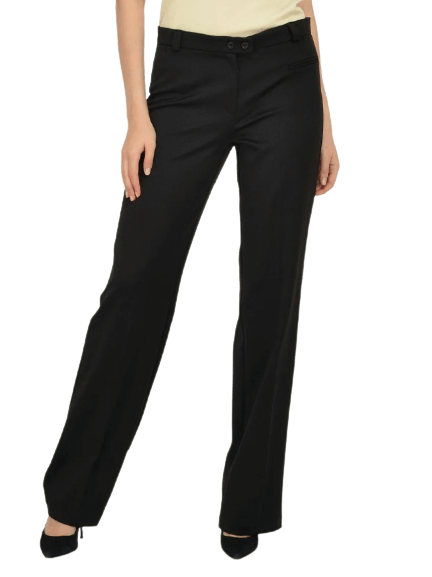
Pants with the same width of pants along the entire length of the product.

Pants that fit tightly around the leg all the way around.

Pants, loose or straight at the top and tapering at the bottom. The taper can be from the knee or directly at the calf.
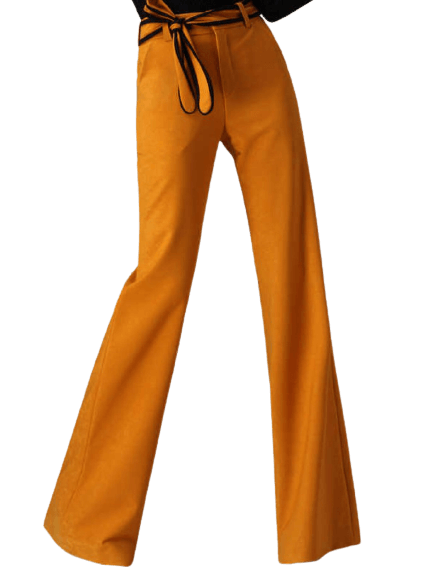
Loose, straight or close-fitting pants, extending to the bottom. Extends from the knee or from the thigh.

Pants of partial length, the bottom line which passes above the ankle.
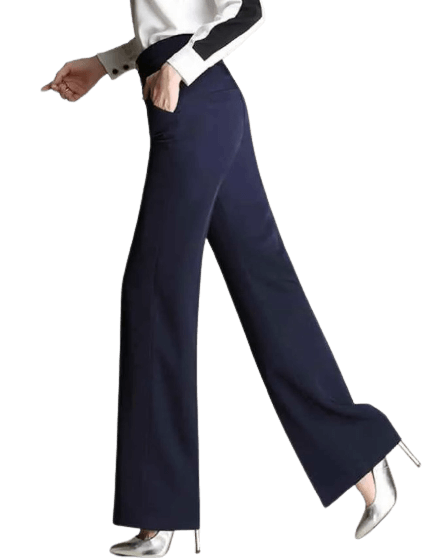
Pants are standard length. For classic pants - to the middle of the heel of the shoes, for casual models - to the ankle or slightly lower.
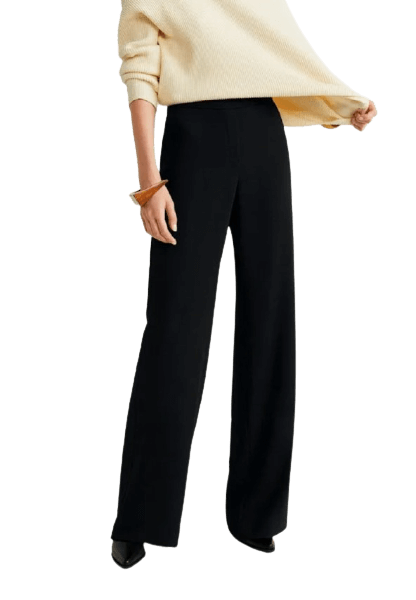
Pants with elongated pants that cover the entire leg and sometimes the shoes.
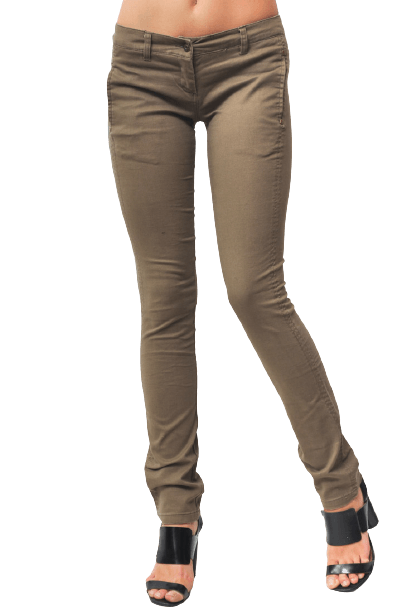
Pants with an understated waistline, which runs 5-8 centimeters below the navel.

Pants with a classic fit, the waist part of which goes just below the waist line.

Pants, the belt which is located at or above the waist line.
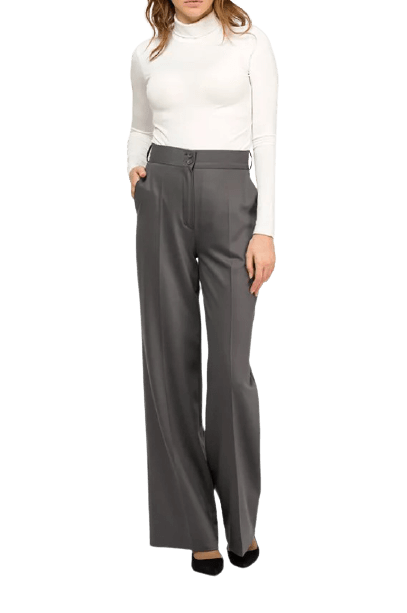
Strictly business casual pants in office style. In the standard version have a straight cut, are made in calm shades and do not contain additional decorations. Often have arrows.
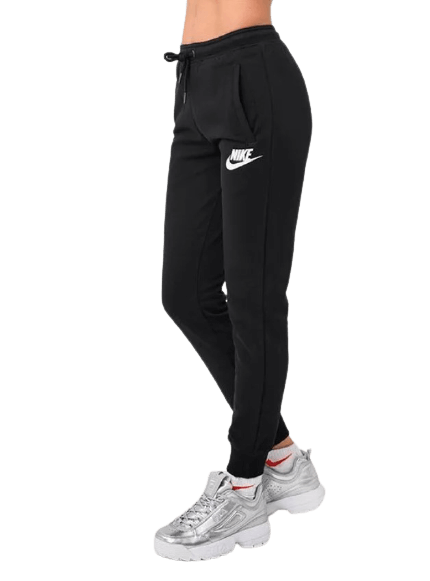
Originally training soft, stretchy pants in a sporty style. Nowadays they are also used for everyday wear.
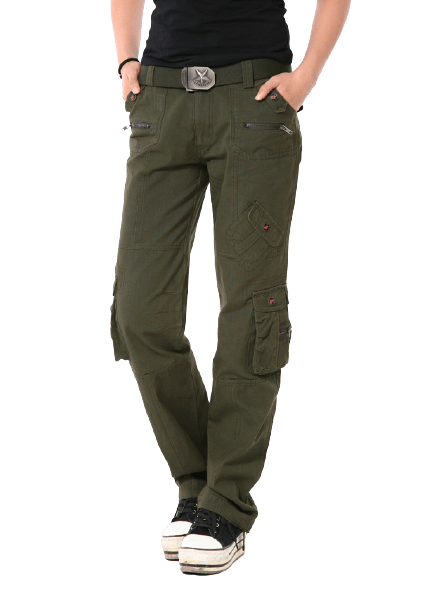
Pants that look like military, military style. Often with patch pockets and buttons. Colors range from khaki to camouflage.
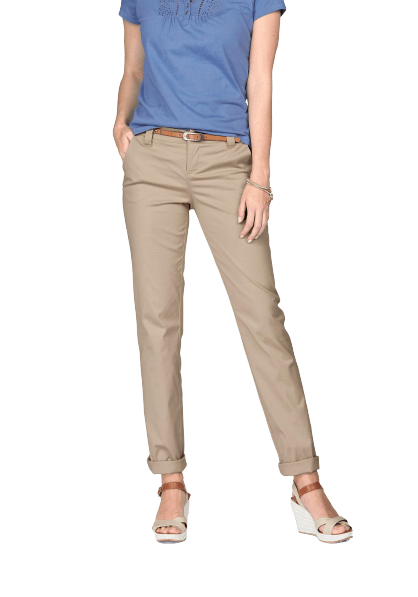
Basic pants that form the basis of a casual closet. Usually of neutral color, without additional decorations. Most often tapered or straight.
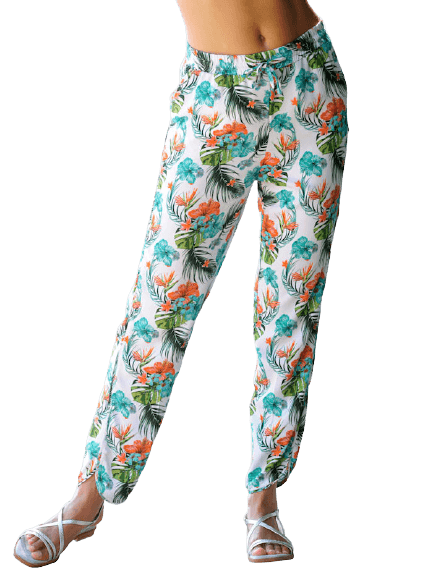
Beach or summer pants are a product made of light, airy fabric in bright colors. Originally designed for visiting the beach, as they are not hot and easy to remove if necessary.
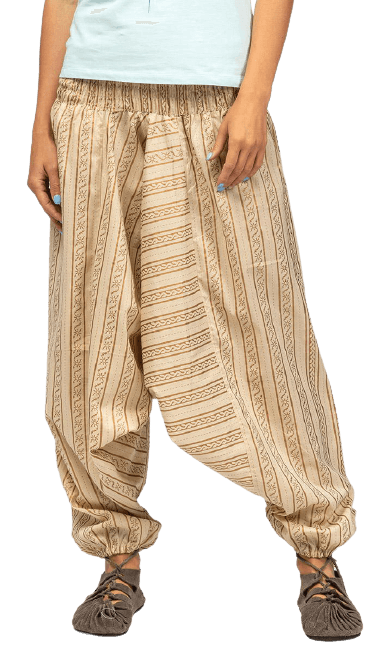
Pants or alladins of light fabric, part of the traditional oriental costume. Often decorated with ethnic patterns, but can also be monochrome.
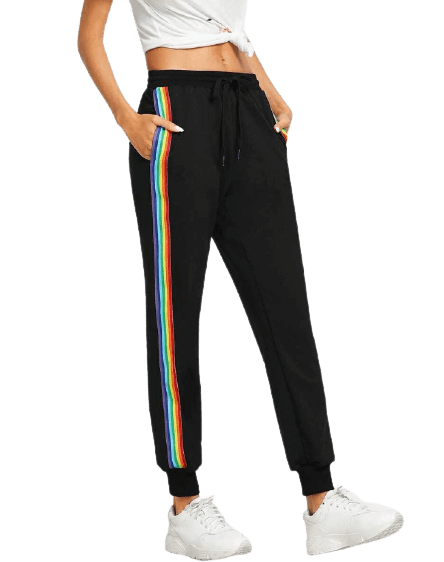
Pants designed for sports - running, fitness, skiing and other sports. They are characterized by a comfortable fit and a soft, elastic material.
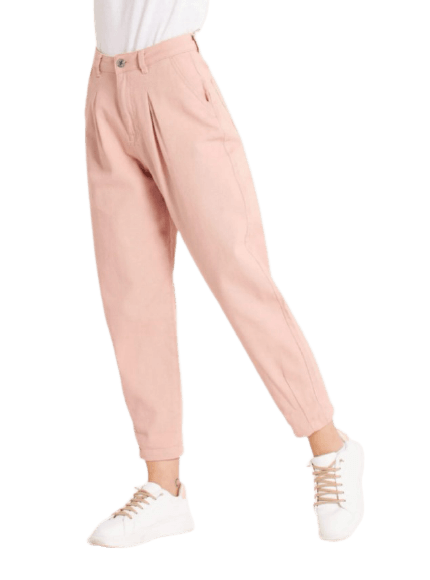
Pants designed for everyday wear - walking, going to a cafe, traveling. Most often have a restrained design, but the style of the girl's clothes will be decisive here.
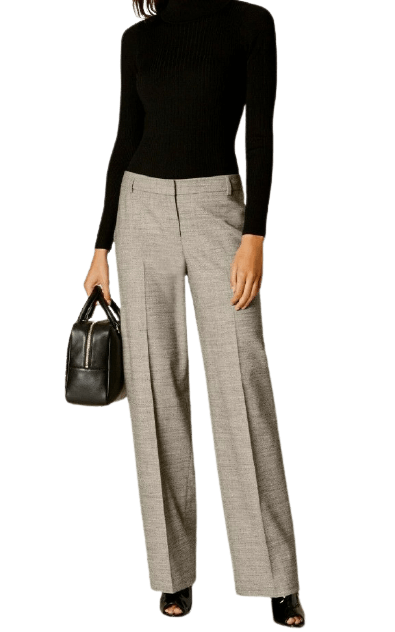
Pants designed for work. Business pants are often understood as classic pants, but this is not always justified - the appearance of business pants dictates the dress code of a particular company.
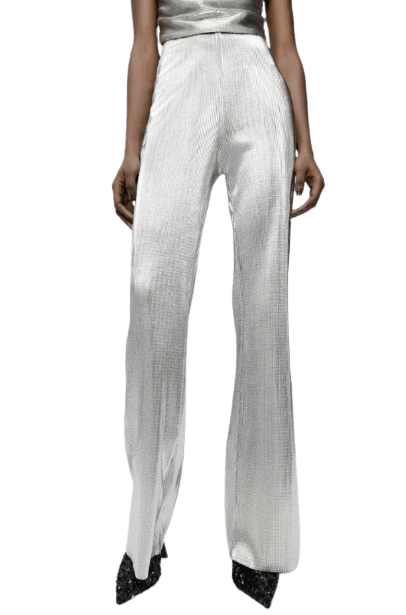
Elegant, festive pants. Usually made of light, expensive fabrics, often silk.
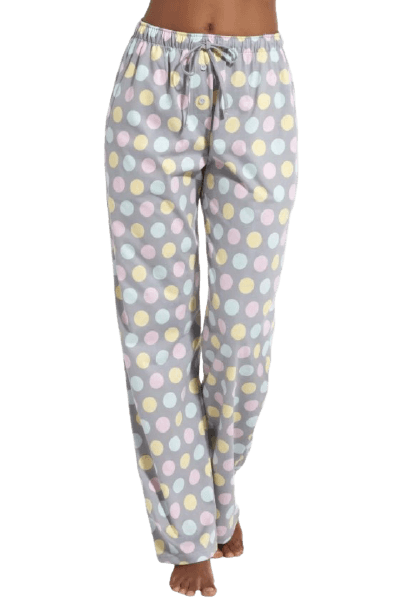
Home, household, night pants - comfortable, pleasant to the body and with a relaxed fit pants most often made of cotton fabric or silk. They can be part of pajamas or a separate product.
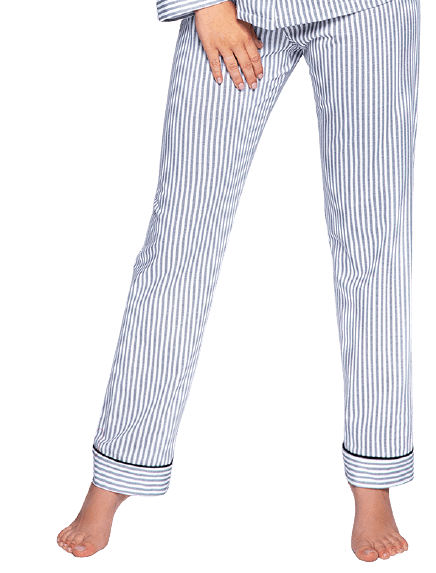
Lightweight pants of silk or satin, stylized as pajama pants or actually pajama pants. They have loose straight cut pants, often with tucks at the bottom.
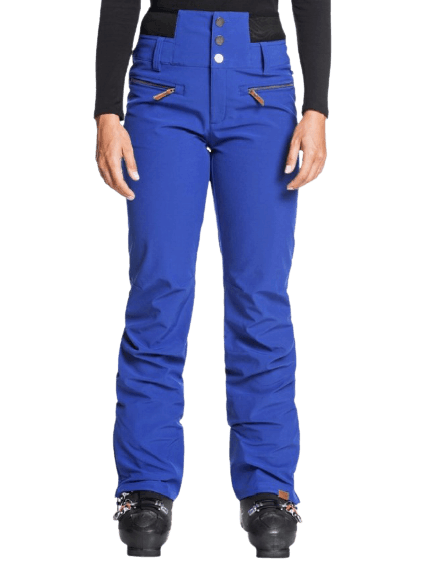
Ski, ski pants are a type of pants for winter sports. Warm, waterproof, often made with a membrane. Can be quilted and with suspenders.
Pants made of a dense, cotton fabric with a velvety surface and small vertical stripes in the form of thin stripes.
Pants of natural or synthetic leather. They are strong, flexible and durable, but demanding to care for.
Lightweight, natural pants made of linen fibers. Used in summer closet, as they are good at dissipating heat, providing proper thermoregulation.
Pants made of natural or man-made wool, knitted by machine or by hand. Can be coarse or smooth knitted.
Lightweight, sleek, shiny pants, characteristic of linen or pajama styles. Pleasant to the body, but tricky to care for.
Insulated winter pants made of different types of fabrics, equipped with a medium or long pile on the inside. Also pants with fleece are called pants with additional insulating lining of fleece, bonding.
Pants with uniform, short pile on the outside. Velour can be knit, wool, drape.
Denim, denim, denim are natural or blended fabrics for making denim pants of varying densities and strengths. Traditionally have a blue, blue or indigo color.
Natural cotton pants made of cotton fiber. Prone to "shrink" with washing and a lot of crumpling during wear. More breathable and therefore more appropriate for summer time.
Cashmere pants are a natural thin, soft fabric created from the down of cashmere mountain goats. Characterized by good warming properties, but meticulous in care.
Warm, thick woollen pants. Can be differently woven, which divides wool pants into tweed, gabardine and crepe. Keeps you warm but requires delicate care.
Lightweight natural or semi-synthetic material of silk fibers of special weave. Sleek, glossy, airy satin pants are used for lingerie style models as well as for oriental style pants.
Pants made of polyester with the addition of other types of synthetic fibers. Will not absorb moisture and will hold the warmth well.
Pants made of synthetic fabric with polyester fibers. Leatherette pants are resistant and durable, but do not breathe and become electrified.
Pants made of viscose, a synthetic material made of natural cellulose. Good air permeability, absorbs moisture. Used for sports pants, leggings.
Eco-leather is an artificial material based on cotton cellulose, natural leather and polymers. Eco-leather pants look similar to leather pants, but are more environmentally friendly and practical.
Tweed is a type of wool fabric. Tweed pants are heavy, dense, with a small pile and diagonal thread weave. Characterized by warmth and stable shape of the product.
Soft, velvety pants made of real leather of small animals or a mixture of synthetic and cotton. Suede pants are strong, hard-wearing and crease-free.
Lightweight cotton, silk or synthetic pants made of a special weave fabric. Translucent, so most often chiffon is supplemented with another, denser material.
Pants made of different types of fabric, most often nylon or polyester with an applied membrane. Membrane pants are most often trekking, hiking pants for which air circulation is important.
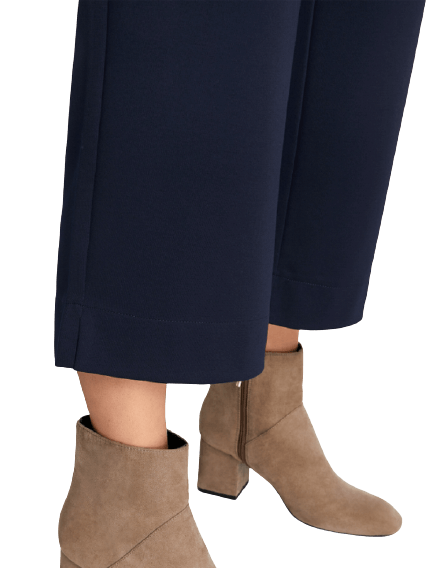
Decorative trim at the bottom of pants in the form of inward folded and stitched fabric.
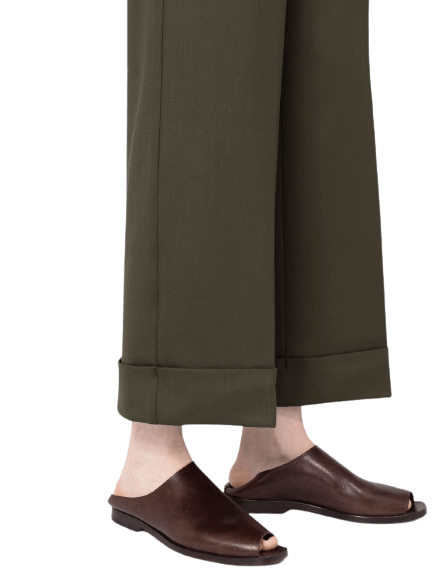
A reinforced cut trim in which the pant leg is tucked inward twice and then hemmed. Used so that the cut is not visible from the outside or inside.
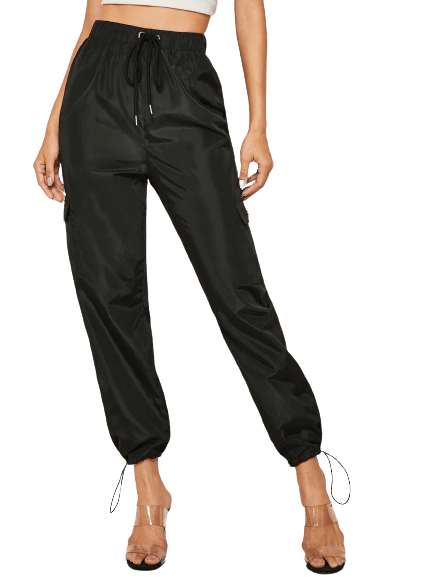
An elastic band or drawstring inserted into a sewn-in or tucked-in strip of pant fabric. Used to adjust the fit at the bottom of the pants.
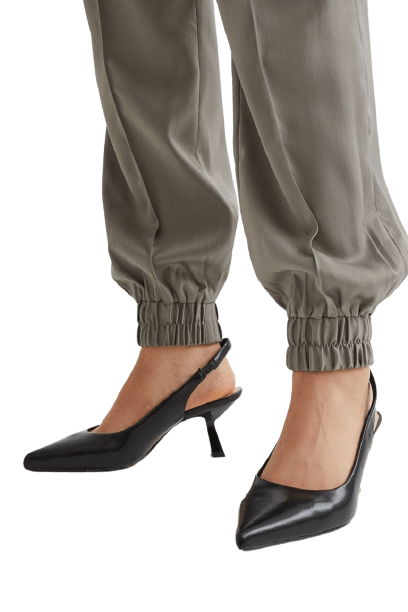
Rubber or latex based flat tape sewn into or over the bottom of the pant legs. Used to maximize the fit of the legs at the bottom of the pant legs.
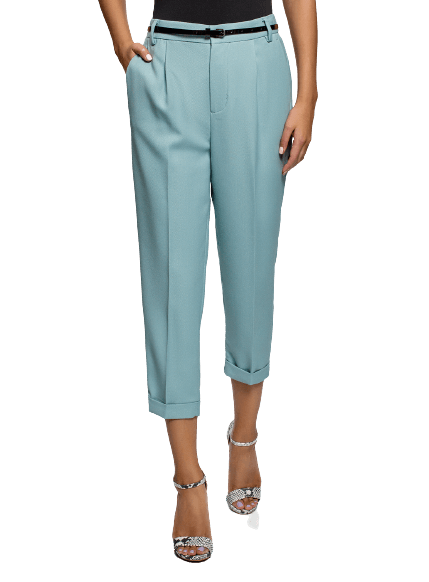
Lapel or tucker, is the folding of the trousers outward. It varies in width, and the number of tucks.
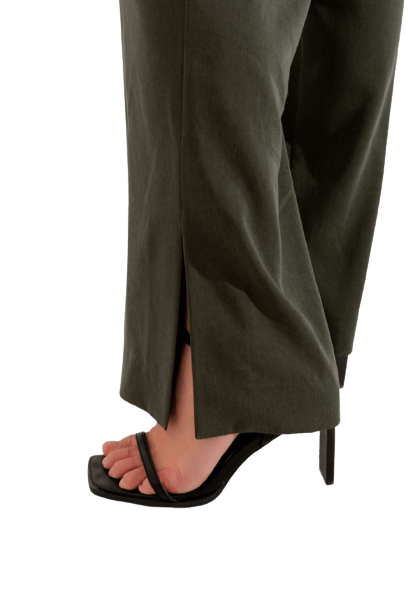
Vertical cuts from the bottom of pants of different heights - from insignificant 2-3 cm to deeper ones. They are placed on the sides of the trousers or on the front part.
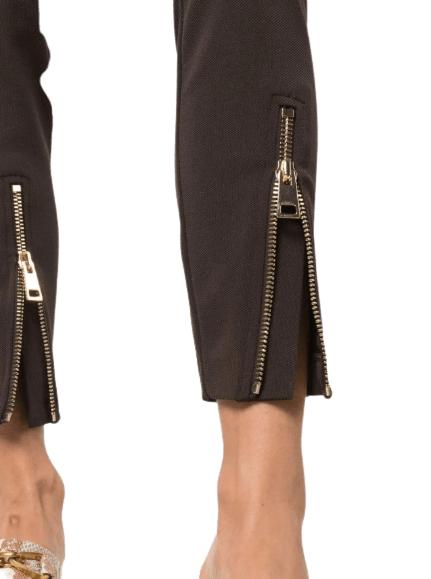
Vertical zipper 10-15 cm long. It has a decorative function.
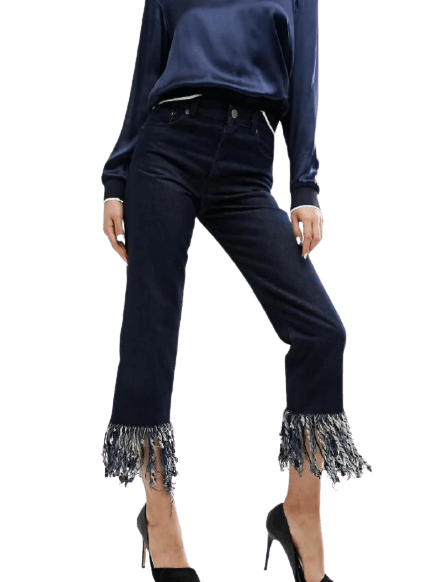
Hanging strands of different color or material. They can be sewn on, that is, sewn to the already finished product, or loose from the main fabric - this type of trim is often found on jeans.
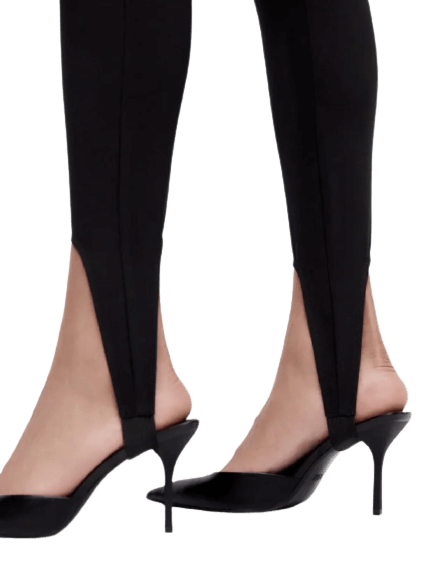
A transverse strip of fabric sewn at both ends to the bottom of the pants. Helps the pants not to crease and stay taut.
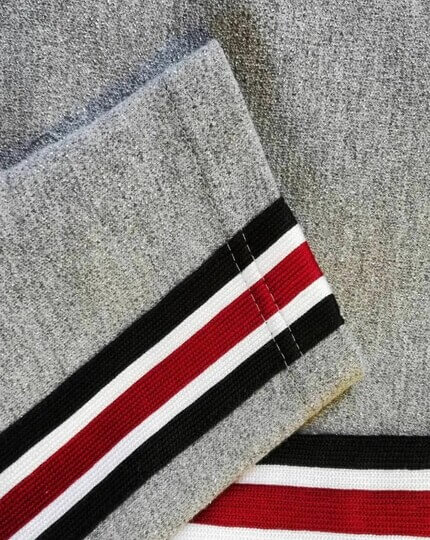
Contrasting vertical stitched inserts throughout the length of the pants. Lampasas can be single - one stripe on each pant, double, triple.
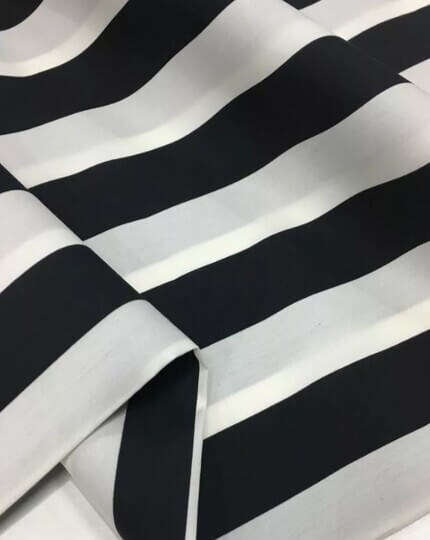
Pants with vertical or horizontal stripes of different widths. Most often the stripes have a contrasting color to the main color.

The only or multiple references to the brand of the trouser manufacturer. Most often found on sports pants.
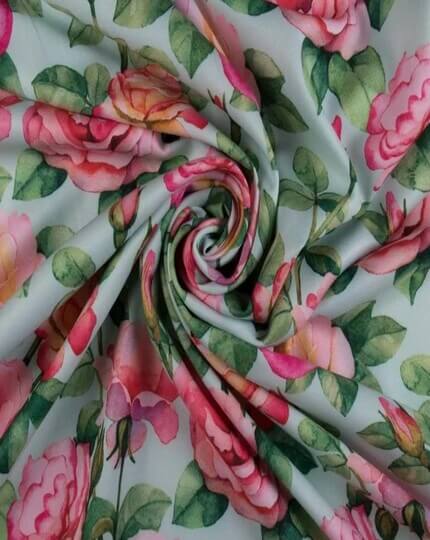
Pants made of fabric with a pattern on it - flowers, abstracts, animal colors, inscriptions. Characteristic design option for informal pants of sports, street or casual style.
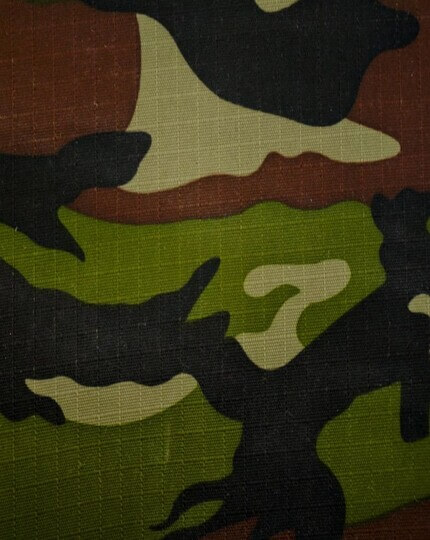
Pants with camouflage coloring originally invented to reduce the object's visibility to people. It is made in the form of "blotches" of similar shades of green, gray, and brown.
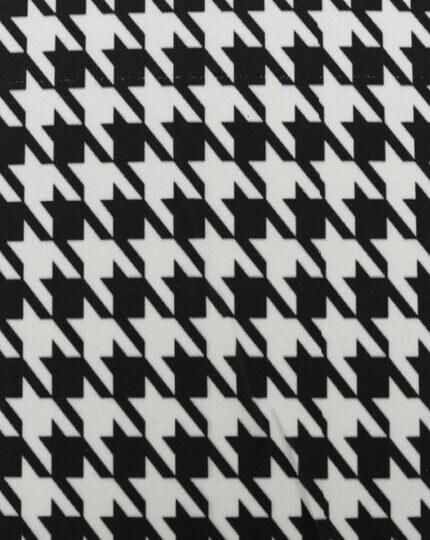
A geometric pattern of two colors, in which broken cells or polygons echo. A frequent guest of business pants.
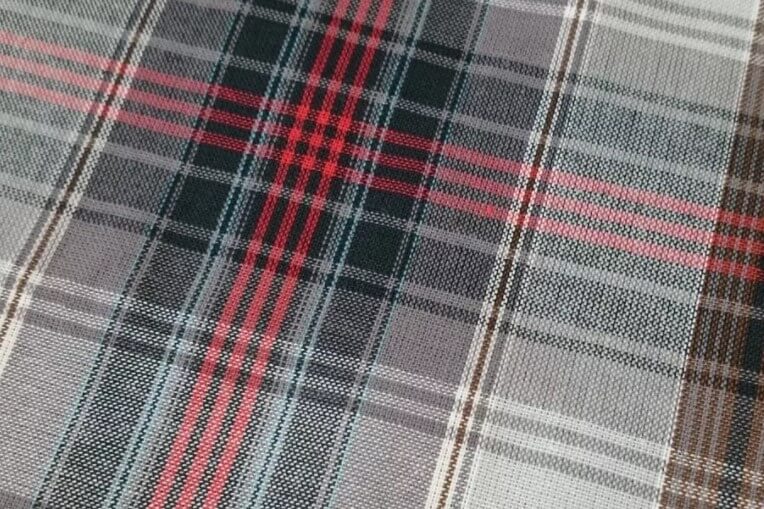
Pants designed with squares. Squares can be large or small, as well as pronounced or weakly contrasting.
